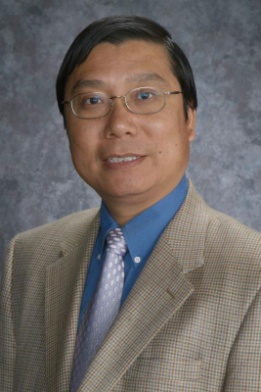学术报告 生物制造 — 再生医学领域一个新的范式转变
(Tissue Biofabrication—A New Paradigm Shift in Regenerative Medicine)

报告人:Kaiming Ye,博士、教授
报告时间:2018年7月24日(星期二)上午09:30
报告地点:A3楼312会议室
报告摘要:
Creation of highly organized multicellular constructs, including tissues and organoids, will revolutionize tissue engineering and regenerative medicine. The development of these technologies will enable the production of individualized organs for patient-tailored organ transplantation or individualized tissues for cell-based therapy. These lab-produced high order tissues and organs can serve as disease models for pathophysiological study and drug screening. This lecture will discuss grant challenges in the emerging field of advanced biomanufacturing. The discussions will be more focused on the development of new tissue biofabrication technologies and how these developments will lead to new models of generating tissue organoids, automated and closed systems, systems for a range of needs from cell culture medium formulation to biomaterial formulation, stem cell differentiation and tissue development/assembly, functionality assessment, in- or on-line sensing, product release evaluation, QA/QC, and supply chain. This concept of advanced biomanufacturing shifts the emphasis from massive production of uniform biomedical products to high-volume, small-scale production of customized tissue products that have a short shelf life. These challenges necessitate a radical manufacturing paradigm shift from conventional, centralized, off-the-shelf medicinal products to a new class of cell- and tissue-based products for precision medicine. The ultimate realization of new manufacturing practices for human cell and tissue clinical application demands a decentralized yet standardized model, providing reliable and robust manufacturing at regional facilities. These regional facilities must manufacture, test, store and distribute cell products safely and efficiently to patients as needed. We have developed an innovative tissue assembly technologies for developing islet organoids from human pluripotent stem cells (HPSCs) and technologies needed for printing small diameter blood vessels for transplantation. We showed that islets can be fabricated from hPSCs. The further optimization of the process will enable the biofabrication of human islets. The fabricated islets can be used for diabetes treatment, drug screening/toxicity validation, and pathophysiological study. Along these lines, we have recently successfully developed a new bioink that possess a shear-thinning property ideal for islet 3D bioprinting. We tested the bioink in blood vessel printing and will move to islet printing upon the success of blood vessel printing. In addition, this lecture will discuss grand challenges in workforce training in biomanufacturing.
报告人简历:
Dr. Kaiming Ye is Professor and Chair of Department of Biomedical Engineering, Professor of Pharmaceutic Sciences, and Director of the Center of Biomanufacturing for Regenerative Medicine at the Binghamton University (BU), State University of New York (SUNY), New York, USA. He is one of the top most distinguished and accomplished leaders in the field of Medical and Biological Engineering. He is fellow of AIMBE and senior member of IEEE. His scholarly contributions to the field include the development of the concept of advanced biomanufacturing and his leadership role in promoting and growing the field. He co-organized more than 12 workshops, including two WTEC studies: one for global assessment of stem cell science and engineering and the other for global assessment of advanced biomanufacturing to promote and grow the field of advanced biomanufacturing. He is well known for his work in tissue bioprinting and pancreatic organoid development. He has invented a tissue biofabrication platform for organoid development and fluorescent nanosensors for continuous glucose monitoring. His work in advanced biomanufacturing was featured as a cover story of ASEE PRISM journal. His work in glucose sensors was featured in the Pittsburgh Post-Gazette. His research has been continuously supported by NIH, NSF, NIST, JDRF, ABI and industries. He has chaired and co-chaired a number of international conferences and has delivered keynote/plenary speech in numerous international and national conferences.
He is also a highly accomplished administrator and has contributed significantly to national policy-make in science and engineering. During his tenure at NSF, he directed a biomedical engineering program, making funding decisions and implementing post-award management. He was member of a number of interagency working groups, including the Interagency Workgroup for Neuroscience under the Office of Science and Technology Policy (OSTP), Subcommittee of National Science and Technology Council, Interagency Modeling and Analysis Workgroup, and Multiagency Tissue Engineering and Regenerative Medicine Workgroup. In addition, he was involved in NSF CIF21 IGRET program, cyber-enabled science and engineering program, NIH/NSF joint program on interface between physics and life science, and NIH/NCI-NSF Physicals and Engineering Sciences in Oncology program. Finally, he is a highly accomplished educator in biomedical engineering. As chair of Biomedical Engineering Department at BU, he led the growth of the Department.
叶开明博士是纽约州立大学宾汉姆顿分校生物医学工程学教授、药理学教授,现担任沃森工程学院生物医学工程系系主任,生物制造与再生医学研究中心主任。他是医学和生物工程领域最杰出和最有成就的领军人物之一。他是美国医学与生物工程院 (AIMB) 理事,也是电气电子工程师协会 (IEEE) 资深会员。学术方面,叶开明教授发展了先进生物制造的概念,促进并引领了该领域的重大进展。他主办或共同主办了超过12个科研培训会议,包括两个世界技术评估中心的科研培训计划:干细胞科学与工程全球评估,和先进生物制造技术与发展的全球评估。叶开明教授开发了具有荧光实时动态检测功能的生物打印平台,并应用于类器官组织发育的研究。他在组织生物打印和胰腺类器官发育方面的工作被广泛报道;他在先进生物制造方面的工作被美国工程教育学会的PRISM杂志作为封面故事报道;他在葡萄糖传感器方面的工作被匹兹堡Post-Gazette 杂志报道。叶开明教授的科研一直受到美国国立卫生研究院(NIH),国家科学基金会(NSF),美国国家标准局(NIST),青少年糖尿病研究基金会(JDRF),ABI以及工业界的资助。他作为主席或者共同主席主办了很多国际会议。他多次在国际会议上做特邀报告。
欢迎大家踊跃参加!
 附件下载:
附件下载: